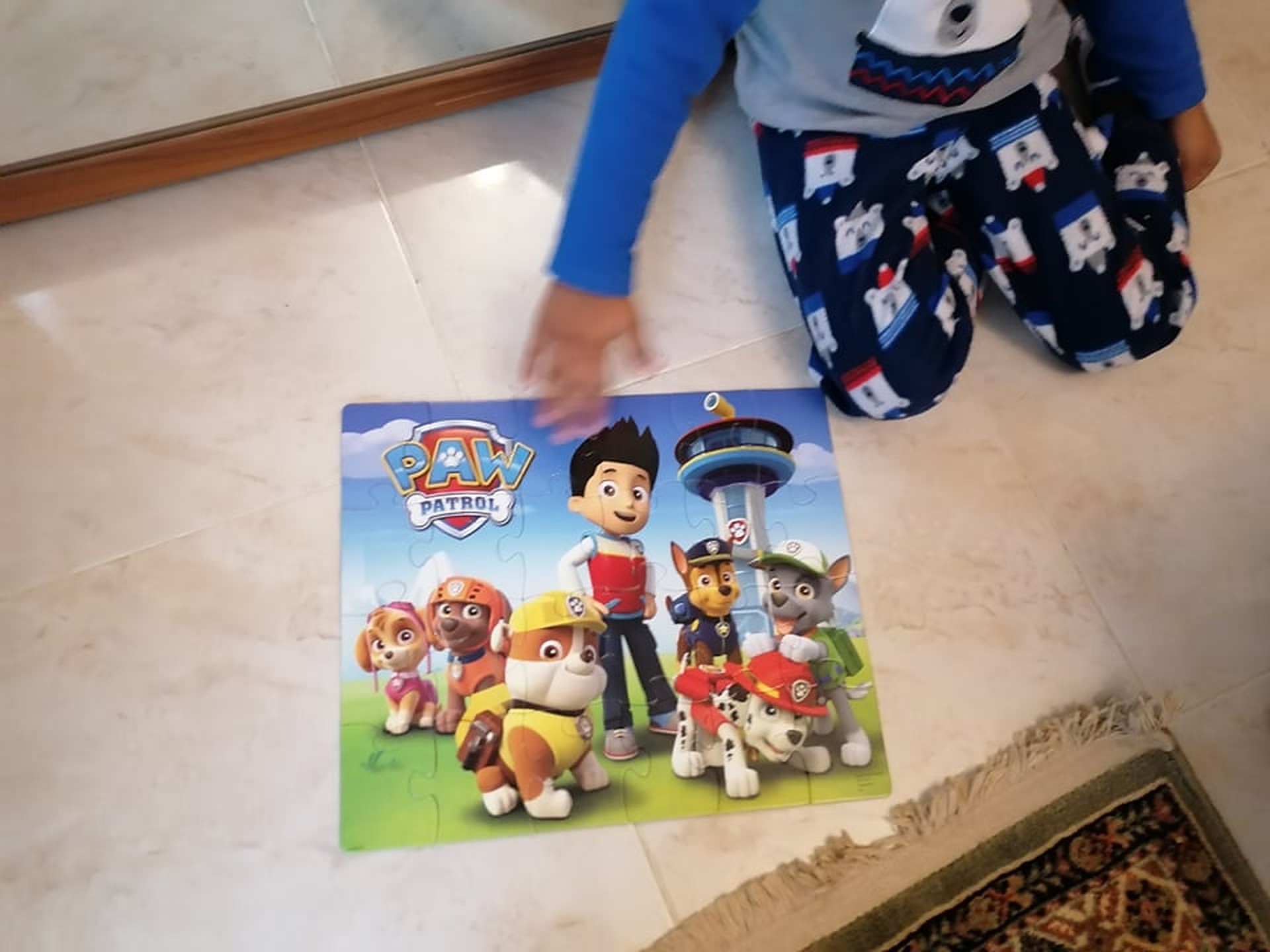
Being under quarantine can be frightening, particularly for young children and youth who are mostly driven and accustomed to life outdoors.
Since the outbreak of the coronavirus, 1.37 billion students around the world became affected by school and university closures in over 130 countries. Egypt’s school shutdown has been extended until further notice, and final exams for primary and preparatory students have been cancelled.
In Egypt, digital learning has been part of the education reform strategy for three years now, launching the edmodo website to help teachers and students better communicate. Universities have also resorted to e-learning platforms and online classes.
The shift to distance and online learning has brought its own challenges and opportunities. We spoke to a few parents and students to take a look into this very new experience.
“It helped bring more cooperation in the house”
To maintain focus and structure, Hadeer Mostafa and her six-year-old son, Hamza, have created a schedule to fill out the day.
A: Morning: prepare breakfast, then watch short films or videos together.
B: Early afternoon: the school sends tasks to finish online, which take around three hours to complete.
C: Late afternoon: prepare lunch together.
D: Evening: play time and spending the rest of the day watching a movie while snacking.
By committing to this schedule, Hadeer notes that it helped bring about many positive changes, namely organization and learning to cooperate and helping one another at home. “He is now learning to help me more often at home and to prepare breakfast and lunch, and cleaning the house. The spirit of cooperation is surely starting to develop,” Hadeer tells Egyptian Streets.
Most importantly, however, it also helped raise hygiene awareness. “He now understands the significance of being clean and washing [his] hands the right way and after every task.”
But the day is long, and Hadeer is worried that she and her son might not always have enough energy to stick to this routine. Boredom and weariness come every once in a while, and just like with any newly adapted lifestyle, adjustment can take time.
Online learning has also been a challenge to keep up with. “Even with the schedule we are committed to following, we can’t keep up with all the topics and tasks online,” she says, “trying to convince a young child to sit still at home while doing school tasks is extremely hard, but this is why I try to allow him to take rest every now and then, and create some order in our lives.”
“Parents can’t always play the role of teacher”
It went from going to school, several trainings such as UC MAS and Qur’an lessons, to suddenly staying at home all day. This rapid transformation left many parents like Gehad, who currently stays at home with her two young kids, a five-year-old and a seven-year-old, anxious and overwhelmed.
For her, assuming the responsibility of educating her children has been the main challenge in distance learning. “I can’t play the role of teacher all the time, and particularly for kids at two different learning levels,” she says.
The first two days went smoothly, she explains, and the children were mostly distracted playing with their games at home, but things soon changed after the new realities of life under partial lockdown set in. “It simply turned chaotic after that,” Gehad says. “They began screaming and crying from boredom, but I tried calming them down and telling them that things will return to normal again.”
Unlike Hadeer, Gehad hasn’t quite yet committed to a schedule at home. Overwhelmed with all the tasks that have to be done, she is trying to gradually work things out with her kids as the day goes by.
“We study for a while, then play for a while, then fight and scream for a while. This is now the routine, and we pray that we come out of this crisis safely.”
“We are trying to bond and create memories even from home”
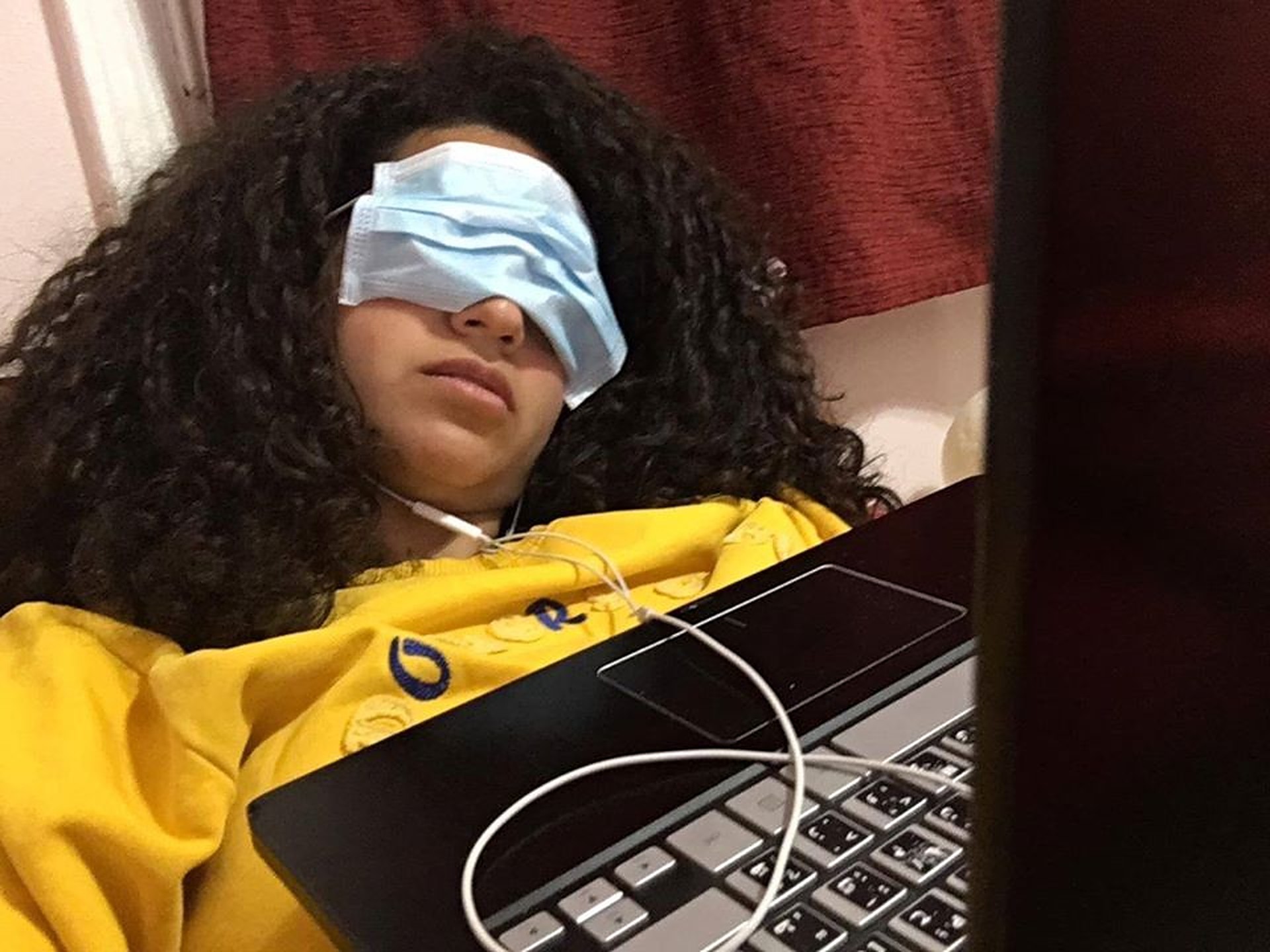
For senior clinical pharmacy students at Cairo University, this was meant to be their time to create as many memories as they could before drifting apart. The class initially created a Facebook page entitled Dealers of 2020 to document their last year at university, but senior trips, mixers and gatherings were all cancelled, and with them whatever memories they had hoped to make.
“We were really disappointed and took it really hard, this is our last term and it was dedicated to purely creating memories together,” Yara, one of founders of Dealers of 2020, says, “but then we decided to think of ways to connect in the digital age.”
In an attempt to keep communication channels open, the group first began sharing a couple of videos of old memories on the page. “We came [up] with the idea of creating our own memories even from home, and help raise awareness to support our country in combating the coronavirus,” she explains.
This led to the ‘CLASS 2020 vs E-LEARNING’ photo album, where several students shared photos of their online learning experience with some humor. In just one hour, the photo album received over a thousand likes and went viral, with over twenty thousand shares. “A lot of students found the album very relatable and found themselves in the pictures, and I think this is why it went viral,” she says.
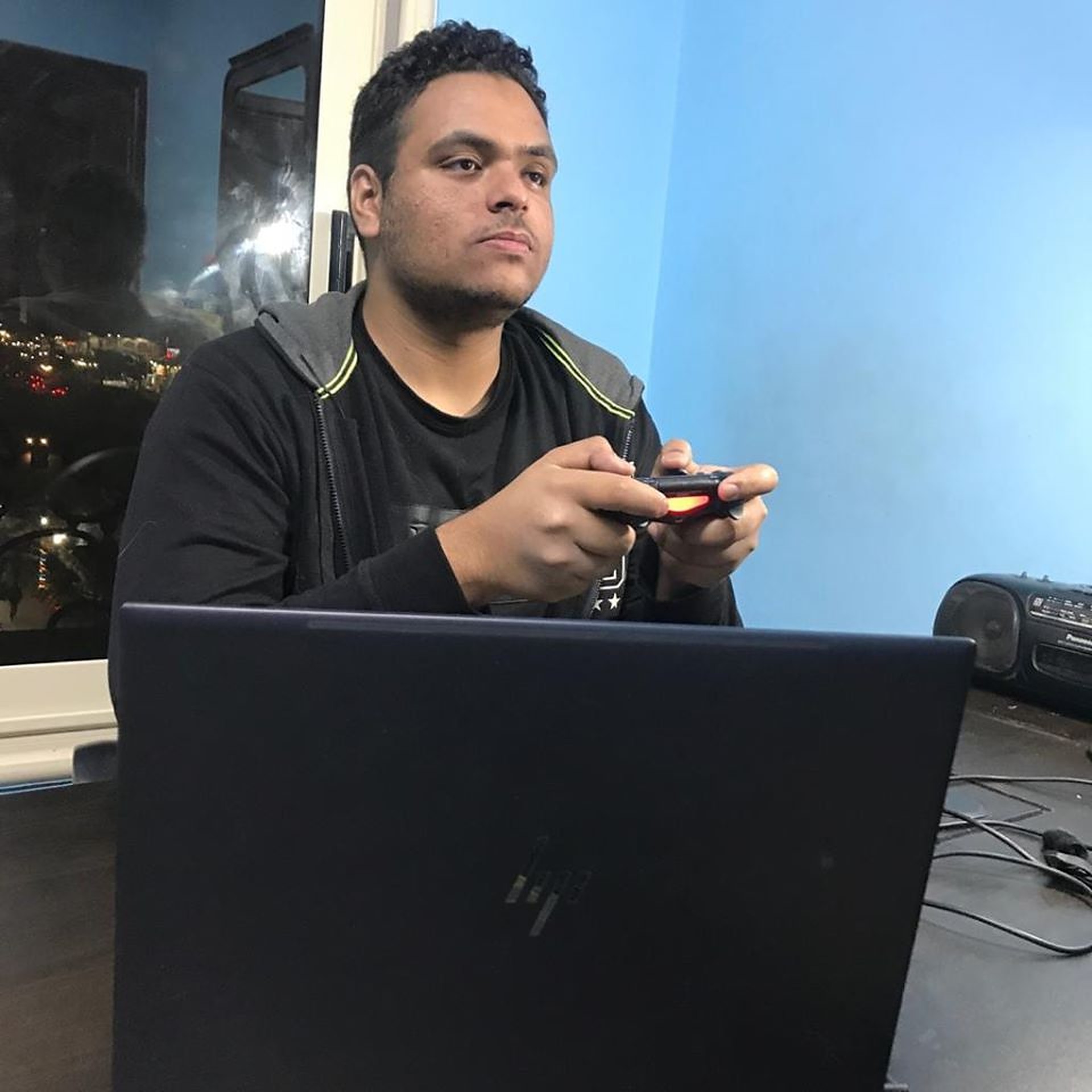
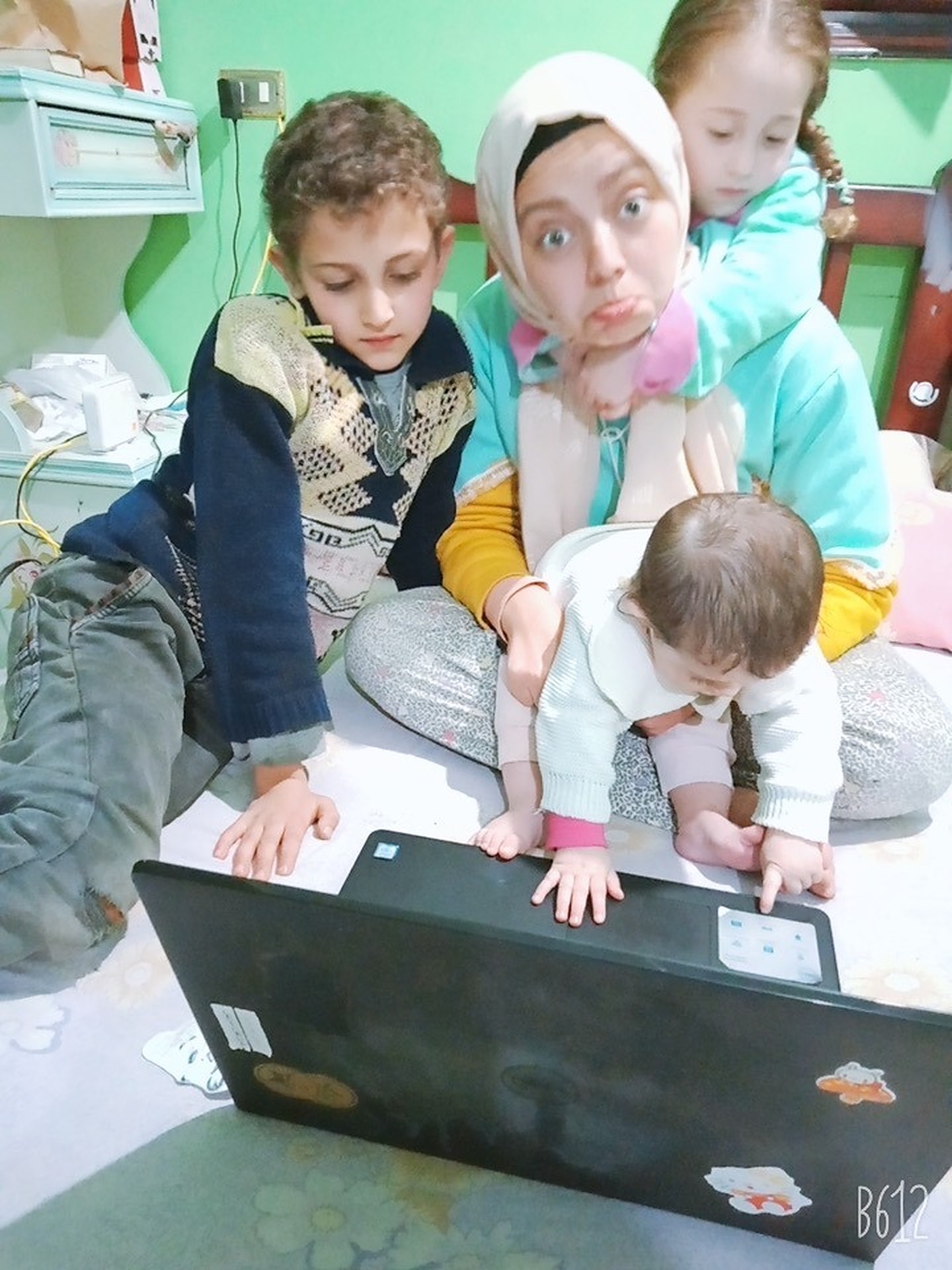
“Our professors even shared it and supported us, and loved the fact that we are dedicated to making memories from home despite all the chaos that is currently happening,” Yara notes.
For many students, online learning is still very new, though professors and teaching assistants have been devoted to keeping the routine ongoing. “Emails are sent to us constantly with voiceover recordings and they notify us of when the e-learning sessions will be live. They have all been very supportive and kept the process going smoothly, and there is also an open discussion room for questions.”
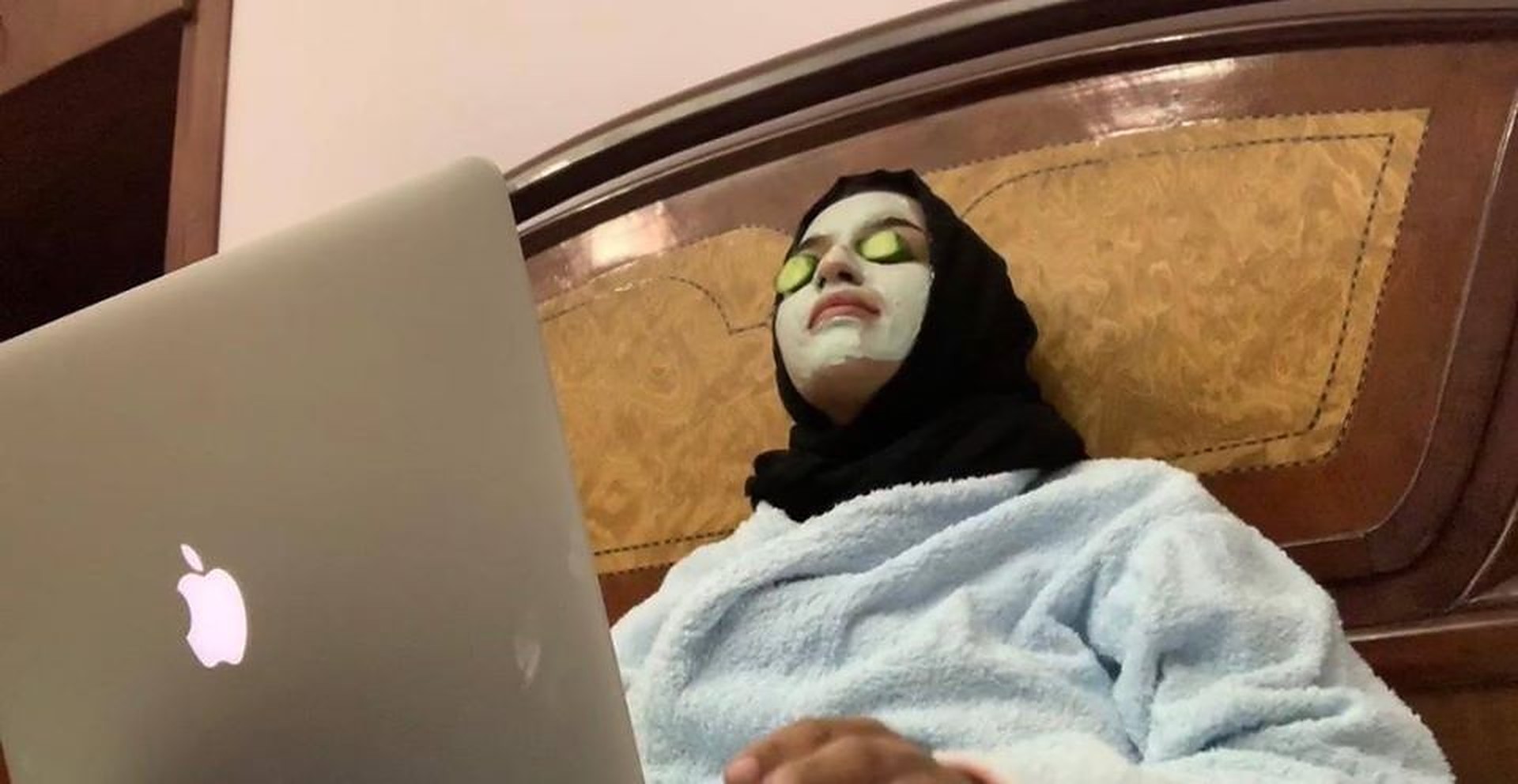
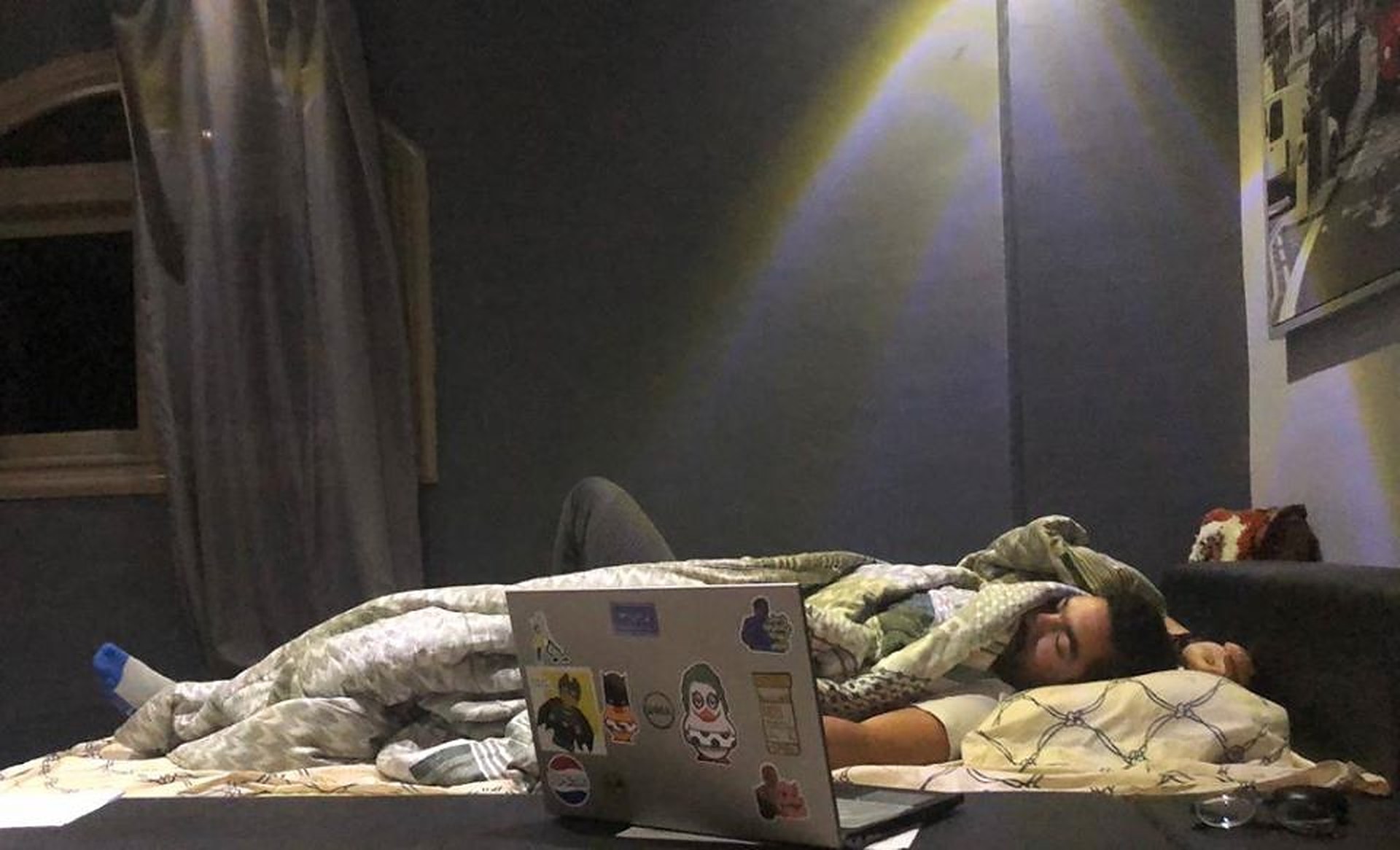
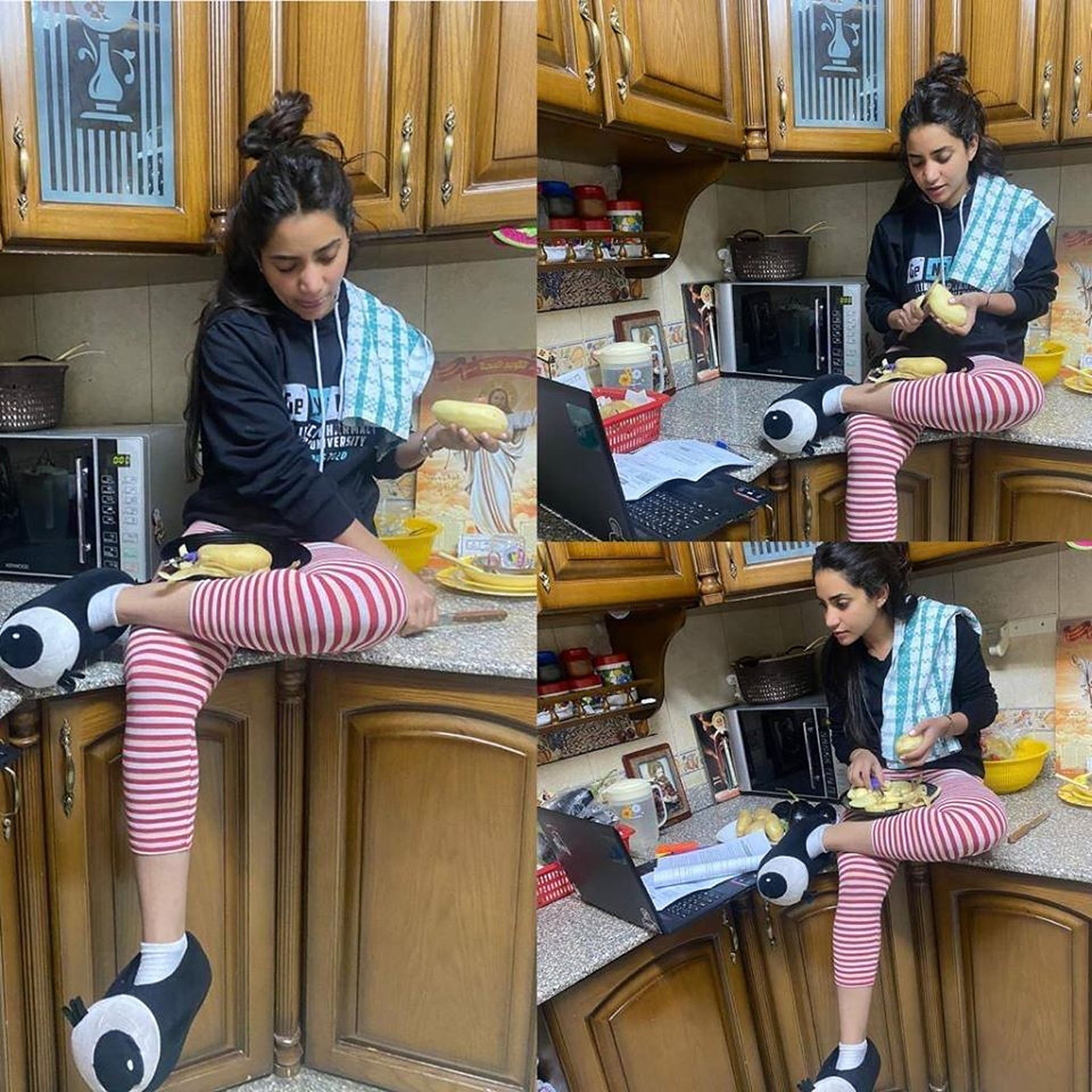
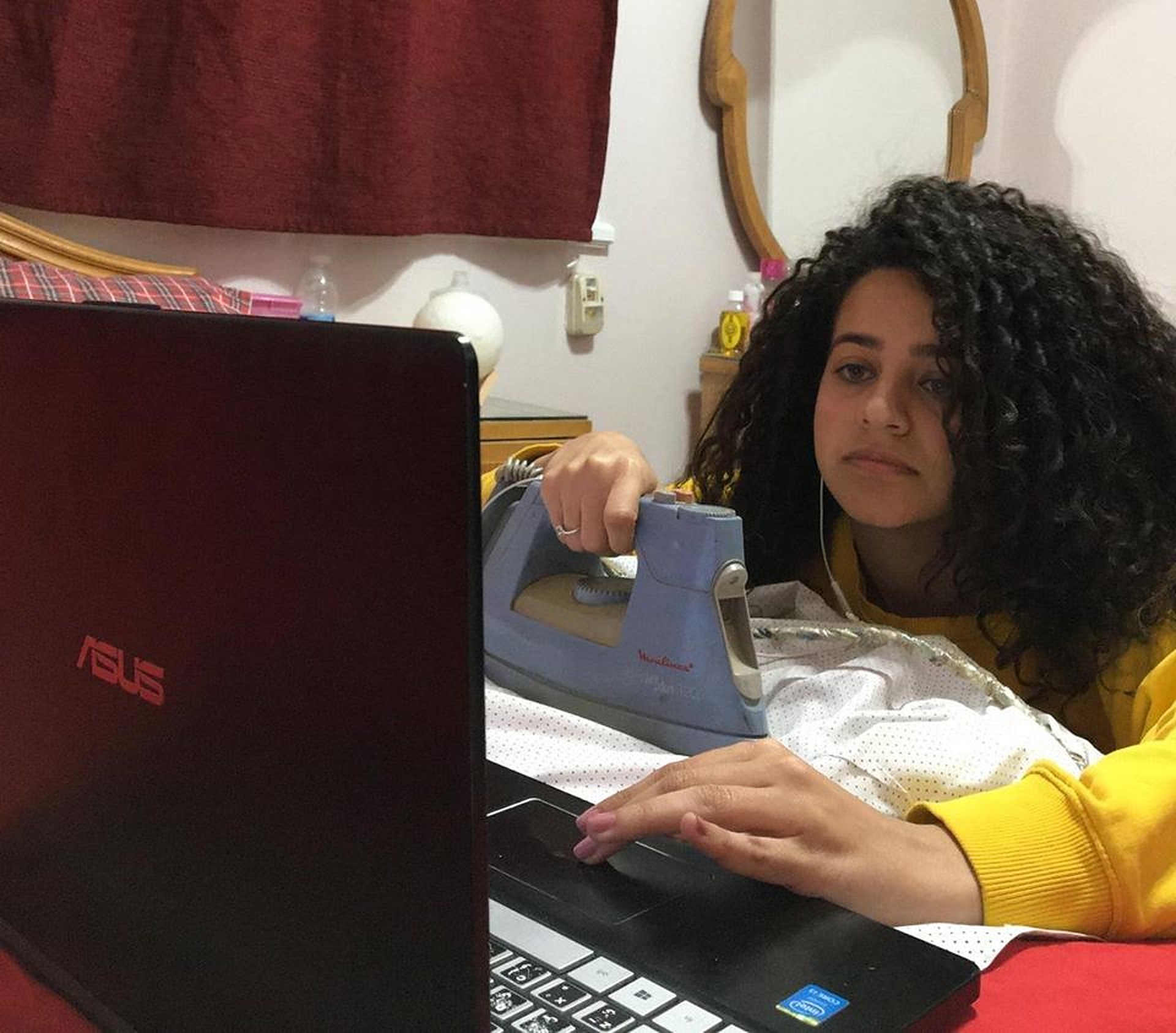
New approaches to learning
The coronavirus crisis has inspired ministers and leaders to contemplate new approaches to learning in the coming age.
On the 10th of March, an online meeting of education ministers was organized by UNESCO, consisting of representatives from 11 countries: Costa Rica, Croatia, Egypt, France, Iran, Italy, Japan, Mexico, Nigeria, Peru and Senegal.
During the meeting, UNESCO Director-General Audrey Azoulay announced the establishment of a ‘Global Covid-19 Education Coalition’, where experts are joined to support national educational responses and explore innovative ways to learning.
In Mexico, for instance, distance learning was extended to television to solve the lack of internet access for many families. “Only 60 percent of students have internet so we had to provide a mix of distance education with open TV to reach everyone,” said Mexico’s Secretary of Education, Esteban Moctezuma Barragán.
In Egypt, the education ministry has been trying to extend online learning for all students. On the 19th of March, the government announced that it had partnered with the Edmodo online learning platform to provide educational material for the country’s K-12 student body.
“We have made more progress with digital and distance learning in the past 10 days than in the past ten years. Without a doubt, this crisis will change the way we think about the provision of education in the future,” said Egypt’s Minister of Education Tarek Shawki.
UNESCO compiled a list of all educational applications, platforms and resources to help parents and teachers to facilitate student learning.
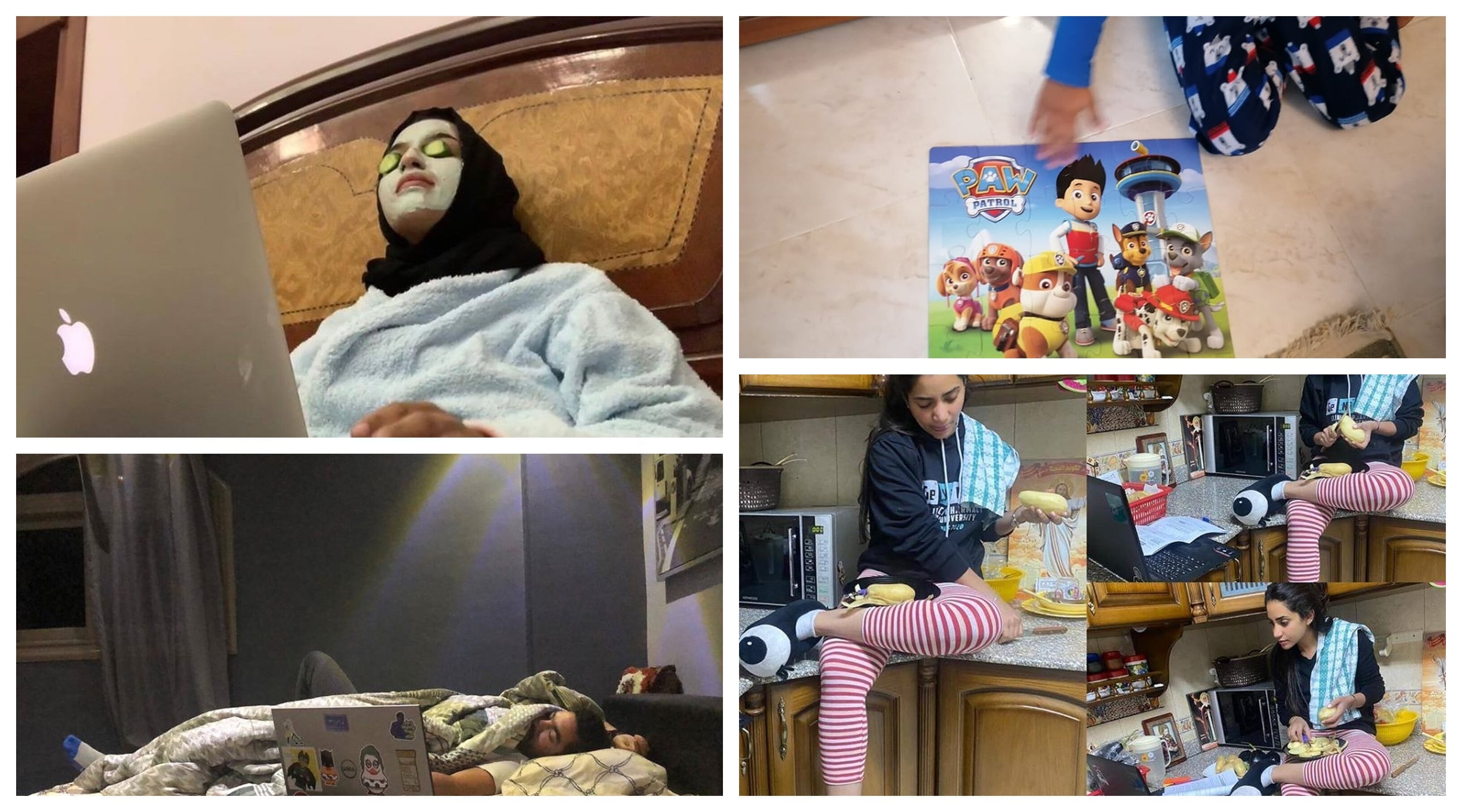




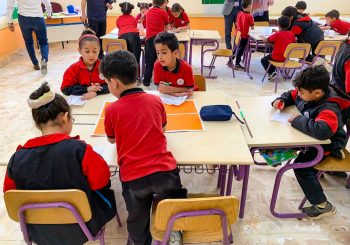

Comments (2)
[…] and universities close – students cope with quarantine and online […]
[…] Youth in COVID-19 Quarantine: How Egyptian Students Are Coping With Coronavirus Pandemic […]